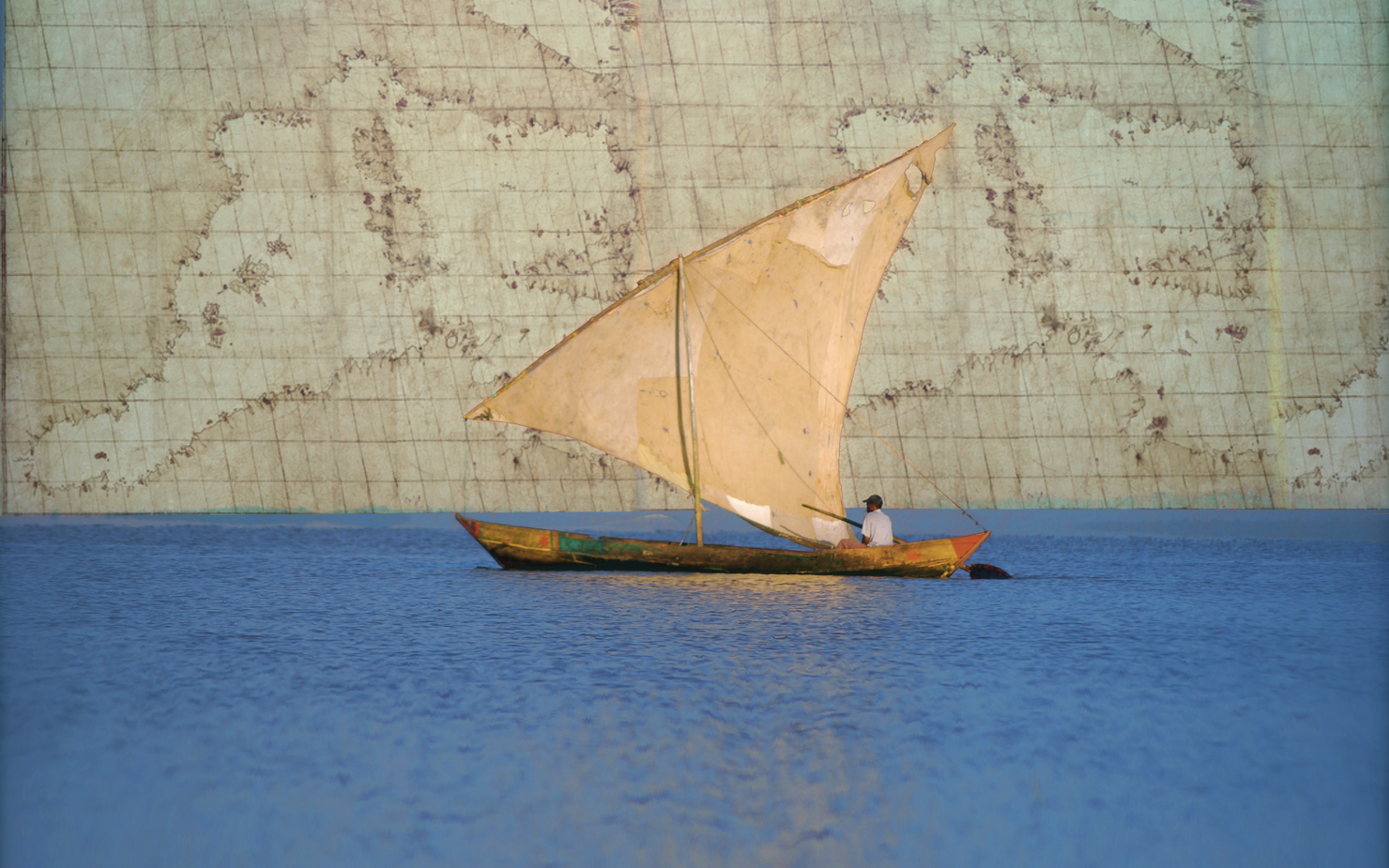Throughout the twentieth century, water has been an object of study by different disciplines, perspectives and cultures, often driven by a variety of ideological positionings. An ever-present subject of political, economic, geographic and cultural debate, water has, in parallel, been used materially and symbolically in a variety of artistic, literary, cinematic, and sonic projects, within the creative environment lately. Previously taken for granted and fixed units of analysis, or ways of seeing, based on concepts such as time, space, nation-state, socio-economic formation, are no longer seen as bounded and delimited based on the ‘permanent’ imagined site of ‘land’. Influx, fluidity, perturbation, liquidity, self-representation, immigration, homelessness, nomadism, stateless, are but examples of the discursive and aesthetic formations used now by researchers and artists who consciously and constantly reposition their epistemic and aesthetic premises across the continuum between the two poles of water–land.
More recently, the intersections between climate change, late capitalism and neo-colonialism, a globalized trade system, the advent of the anthropocene, and the deep, mostly catastrophic, transformations of those junctions, have incited many scholars and artists to look for alternative understandings of the role of water and its intrinsic relationship to life that explore better futures, not only in the context of humans but also of non-humans and the very fabric of the planet itself.
Such approaches will be the focus of this conference, which is organized by the Doha Institute and Qatar’s newest visual arts festival, Rubaiyat Qatar. We seek critical redefinition and approaches to water ways. We invite proposals for papers spanning a range of disciplines, including, but not limited to, politics, economics, geography, sociology, anthropology, history, philosophy, cultural studies and the creative arts, that take water as their central theme. Within this we would welcome proposals that consider water as both a site of traditional and emerging knowledge, of regulation and of liberation, of the managed and the unmanaged, and as a site of fluidity and liquidity that might offer greater understanding of the past, the present and what might be to come.
We believe by creating such cross-sectional platforms, the conference will boost the relevant communities of researchers and artists and further develop the quantity as well as the quality of water studies and artistic projects, while emphasizing the inter-sectional nature of the epistemic and the aesthetic aspects of water in our times and beyond.
The Doha Institute for Graduate Studies (DI) was founded in Qatar in 2015 as a Doha-based independent institution of higher education. The Institute offers MA and PhD programs in two schools: the School of Social Sciences and Humanities and the School of Economics, Administration and Public Policy. The Institute adopts a student-centred approach to learning, promotes interdisciplinary research, and uses Arabic as the primary language of instruction, with fluency in English a requirement.
Rubaiyat Qatar is a countrywide quadrennial visual-arts exhibition that will launch its inaugural edition in October 2026. A collaborative project in conjunction with a number of Qatar-based institutions, the programme also incorporates a variety of academic programmes, pop-up exhibitions and workshops that will unfold over the years preceding the opening.
Proposal requirements:
- 250–500 word abstract
- Abstracts and papers will be accepted in either Arabic or English.
- Submission deadline: 10 January 2024
- Submission email: submissions@rubaiyat.org.qa
